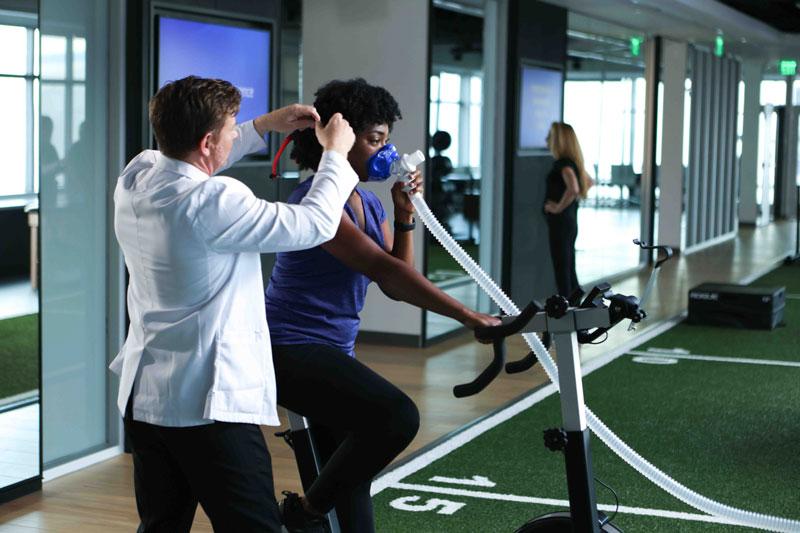Athletic performance is the result of a harmonious blend of physical prowess, mental resilience, and strategic training. Whether you’re an amateur enthusiast or a seasoned professional, the pursuit of maximizing athletic performance is a journey that requires dedication, discipline, and a holistic approach. In this blog, we will delve into key strategies that can help you unlock your potential and reach new heights in your athletic endeavors.
1. Prioritize Proper Nutrition: Fuel for Success
Imagine a high-performance car running on subpar fuel. The same principle applies to your body. Proper nutrition is the foundation of athletic performance. Aim for a balanced diet rich in lean proteins, complex carbohydrates, healthy fats, and a variety of vitamins and minerals. Hydration is equally vital. Our team can help you to understand your body’s needs, and plan for your future.
2. Tailored Training Regimen: Quality Over Quantity
Avoid the trap of overtraining. Instead, focus on a well-designed training regimen that aligns with your goals, body type, and current fitness level. Incorporate a mix of cardiovascular exercises, strength training, flexibility work, and sport-specific drills. Adequate rest and recovery are just as important as rigorous training sessions, as they allow your muscles to repair and grow stronger.
3. Set Clear Goals: The Roadmap to Achievement
Setting clear and achievable goals is instrumental in maintaining motivation and tracking progress. Whether it’s improving your mile time, increasing your weightlifting PR, or excelling in a particular sport, well-defined goals provide direction and purpose. Break down large goals into smaller milestones to celebrate your achievements along the way.
4. Sleep: The Ultimate Performance Enhancer
Sleep is often underestimated in its impact on athletic performance. During sleep, your body undergoes crucial processes like tissue repair, hormone regulation, and memory consolidation. Aim for 7-9 hours of quality sleep each night to optimize physical and mental recovery.
5. Mental Resilience: The X-Factor
Athletic performance isn’t solely about physical strength; it’s also about mental fortitude. Develop mental resilience through techniques such as mindfulness meditation, visualization, and positive self-talk. Cultivating a strong mind can help you navigate challenges, setbacks, and competition pressures more effectively.
6. Cross-Training: The Power of Variety
Diversify your training routine to prevent burnout and reduce the risk of overuse injuries. Cross-training involves engaging in different activities that complement your primary sport. For example, a runner might incorporate swimming or cycling to work different muscle groups and improve overall fitness.
7. Expert Guidance: Coaches and Professionals
Enlisting the expertise of coaches, trainers, and sports professionals can provide invaluable insights and guidance. They can help tailor your training program, correct your form, and offer advice on injury prevention and recovery strategies. More than that, putting your best foot forward with proper baseline assessments. Understanding where you start is how you see progress.
8. Recovery: The Glue that Holds It Together
Recovery goes beyond just getting enough sleep. Active recovery techniques like foam rolling, stretching, and yoga can improve flexibility, increase blood flow, and alleviate muscle soreness. Additionally, techniques like ice baths, massages, and compression therapy can aid in faster recovery after intense workouts.
9. Consistency: The Secret Sauce
Consistency is the backbone of progress. It’s better to have a consistent training schedule with gradual progress than sporadic intense bursts of activity. Regularity helps your body adapt and improve over time.
10. Listen to Your Body: Health and Safety First
Pushing yourself is crucial for growth, but knowing your limits and respecting your body’s signals is equally important. Overexertion can lead to injuries that might set you back in the long run. Be attuned to pain, discomfort, and signs of fatigue.
Maximizing athletic performance is a multifaceted journey that involves physical training, mental conditioning, and holistic well-being. By prioritizing nutrition, setting clear goals, embracing recovery, and seeking professional guidance, you can unlock your potential and achieve new levels of excellence in your chosen sport. Our team can help – get in touch today to learn more about how we can help you reach your goals.



